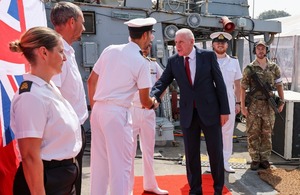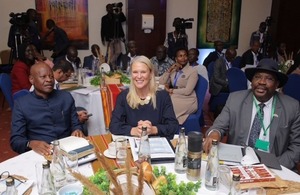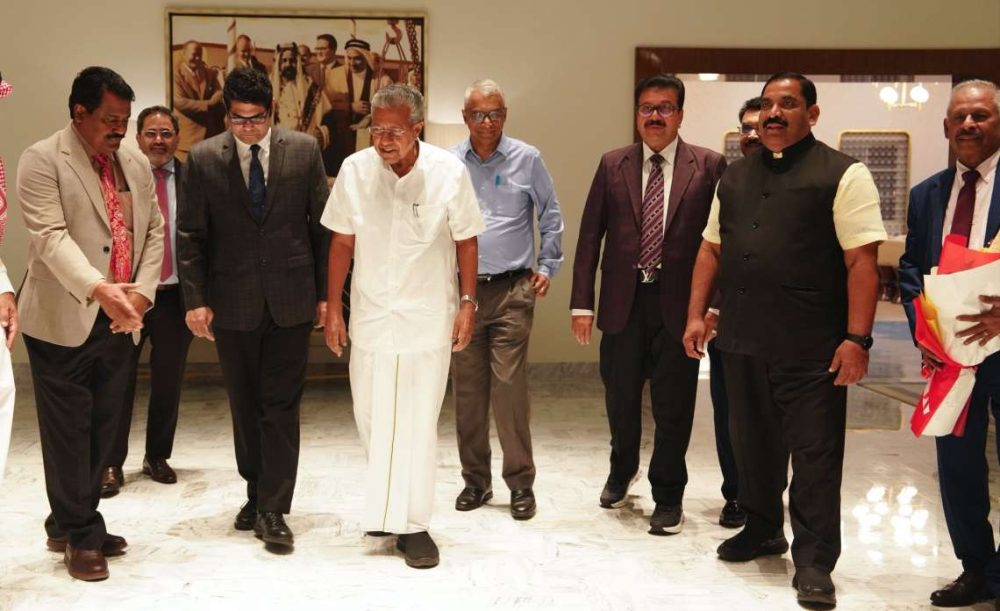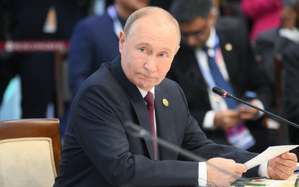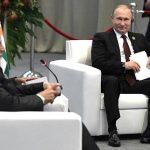Joint exercises with India mark deepening strategic cooperation as new defence deals secure British jobs and strengthen UK’s Indo-Pacific presence…reports Asian Lite News
Britain’s strategic partnership with India has taken a significant step forward as the UK’s Carrier Strike Group (CSG25) completed a high-profile visit to Mumbai and Goa, conducting joint military exercises with the Indian Armed Forces in the Indian Ocean. The visit formed part of an eight-month Indo-Pacific deployment known as Operation Highmast and comes just days after two new defence deals worth £600 million were signed during the Prime Minister’s visit to India.
Led by aircraft carrier HMS Prince of Wales, the CSG joined India’s own Carrier Strike Group, headed by the INS Vikrant, for Exercise Konkan. The drills, held in the western Indian Ocean, were designed to enhance the warfighting capabilities of both navies and develop a deeper understanding between the two military forces.
The UK’s flagship carrier also participated in combined air exercises with the Indian Air Force, underscoring the growing strategic alignment between the two nations and the UK’s commitment to maintaining security at home and strength abroad.
Operation Highmast forms a central part of the government’s ambition to project Britain’s defence presence globally, underpinned by a pledge to raise defence spending to 2.6% of GDP by 2027 as part of the government’s Plan for Change. The deployment demonstrates the UK’s intention to make defence an engine for economic growth as well as a cornerstone of foreign policy.
Defence Minister Lord Vernon Coaker said: “It has been incredible to see the strength and reach of the UK Armed Forces as the Carrier Strike Group continued its deployment in South Asia this week. Alongside our leadership on global security, we have showcased leading-edge defence innovation which strengthens our trading relationship with India and secures British jobs. This strategic partnership helps keep us secure at home and strong abroad, while the trade links promise a valuable boost to the UK economy – demonstrating once again that defence is an engine for growth.”
The visit also showcased Britain’s growing defence industrial collaboration with India. A newly agreed £350 million deal will see the UK supply Lightweight Multirole Missiles (LMM) and launchers to the Indian Army, deepening military-industrial cooperation and further strengthening interoperability between the two nations. The missiles and systems will be produced in Belfast, securing more than 700 jobs in Northern Ireland. The same missiles are currently being manufactured there for Ukraine.
This latest agreement paves the way for an expanded complex weapons partnership between London and New Delhi, which is now under negotiation following the Prime Minister’s visit to Mumbai last week.
British High Commissioner to India Lindy Cameron said: “India, as the world’s largest democracy and an emerging economic superpower with one of the fastest growing economies in the world, is a top priority partner for the UK. The visit of the UK’s Carrier Strike Group to India was testament to the strength of the relationship between our two countries, which has been revitalised by our two Prime Ministers in recent months. Together the UK and India are now focused on the future with our shared vision for 2035, delivering growth, prosperity and security in a time of rapid global change.”
In addition to the missile deal, a new milestone was reached in joint efforts to develop electric-powered engines for naval ships. Both countries signed an Implementing Arrangement worth an initial £250 million, marking the next stage in their cooperation on green maritime technology and naval innovation.
The CSG’s visit follows the UK government’s commitment to the Indo-Pacific as part of its broader strategic posture. It highlights Britain’s role as a reliable security partner in the region and reflects an enduring emphasis on collaboration with democratic nations that share similar strategic outlooks.
After wrapping up its India mission, CSG25 will leave the Indo-Pacific and head toward the Mediterranean for the final leg of its deployment before returning to UK waters by the end of the year. Throughout this journey, the strike group aims to enhance military interoperability with international partners and bolster the UK’s global defence network.
The UK’s ongoing military presence in the Indo-Pacific reaffirms its long-term interest in the stability and prosperity of the region, with India emerging as a crucial pillar of that strategy. As both nations deepen cooperation across defence, trade and technology, their shared commitment to maintaining a free, open and secure Indo-Pacific appears stronger than ever.
With the successful completion of the joint exercises and a wave of new defence deals, the Carrier Strike Group’s visit symbolises not just naval power projection, but also a broader economic and diplomatic partnership that binds Britain and India in a time of global flux.


